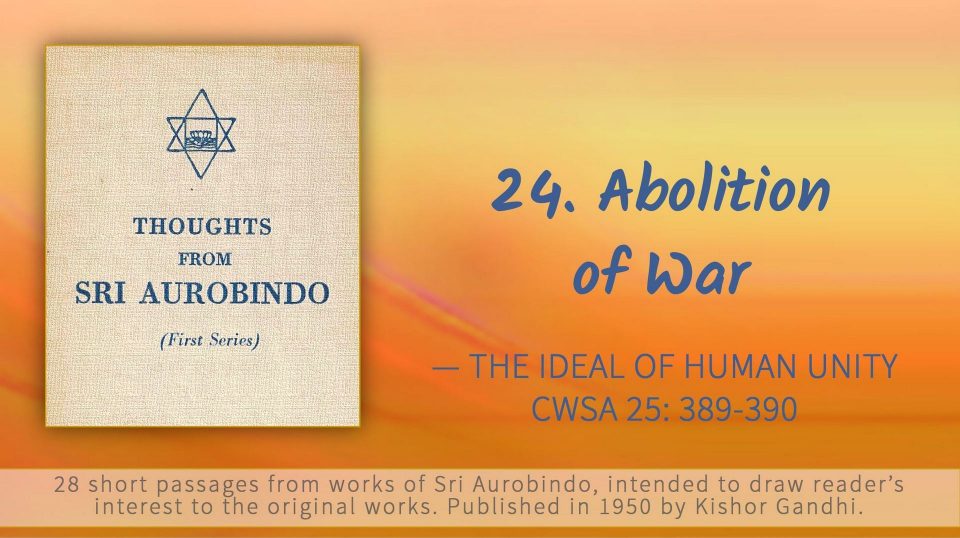
War can only be abolished if national armies are abolished and even then with difficulty, by the development of some other machinery which humanity does not yet know how to form or, even if formed, will not for some time be able or willing perfectly to utilise. And there is no chance of national armies being abolished; for each nation distrusts all the others too much, has too many ambitions and hungers, needs to remain armed, if for nothing else, to guard its markets and keep down its dominions, colonies, subject peoples. Commercial ambitions and rivalries, political pride, dreams, longings, jealousies are not going to disappear as if by the touch of a magic wand merely because Europe has in an insane clash of long-ripening ambitions, jealousies and hatreds decimated its manhood and flung…the resources of decades into the melting pot of war. The awakening must go much deeper, lay hold upon much purer roots of action before the psychology of nations will be transmuted into that something “wondrous, rich and strange” which will eliminate war and international collisions from our distressed and stumbling human life.
— The Ideal of Human Unity
The Human Cycle, The Ideal of Human Unity CWSA 25: 389-390


